'If I didn't discover mermaiding, I wouldn't be here'
'If I didn't discover mermaiding, I wouldn't be here'
- Published
Many children dream about one day being a mermaid beneath the waves. And some have gone on to make it their reality.
After a long day as a pool attendant, Tyler Turner threw her keys on the table and wished she could have been a mermaid like she imagined as a girl.
"Then a lightbulb went off in my head," she said.
Seven years on, she is often found in the sea with her tail and said it "saved my life".
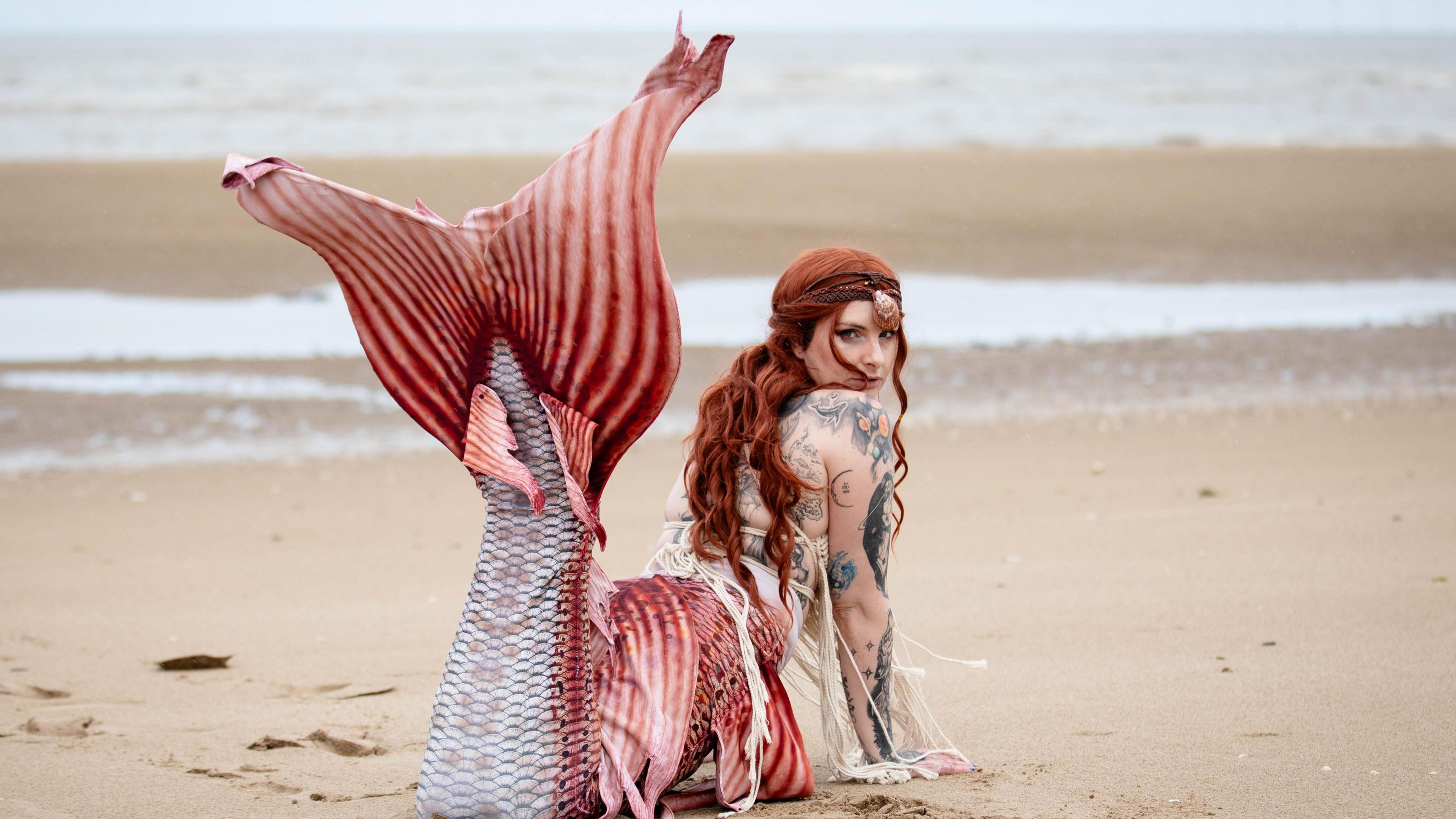
Tyler combines her interest in conservation, the sea and education with her love of being a mermaid
Mermaiding - wearing a mermaid tail - became popular in America in 2015 and over the years qualifications and groups have popped up in the UK.
There are many different types of tails, but they all bind the swimmer's legs together and incorporate a monofin - one joined together flipper - which helps to propel you through the water.
Tyler, 30, of Prestatyn, Denbighshire, said she was going to therapy for chronic depression and anxiety, and found "being under water like being in a meditative state".
"If I didn't discover mermaiding, I don't think I'd be here any more," she said.
She said to some wearing a mermaid tail was a hobby, a profession, or a sport: there was even a global mermaid championship in 2019.
For her, though, "it's a way of life" because she combines it with her love for conservation, education and modelling.
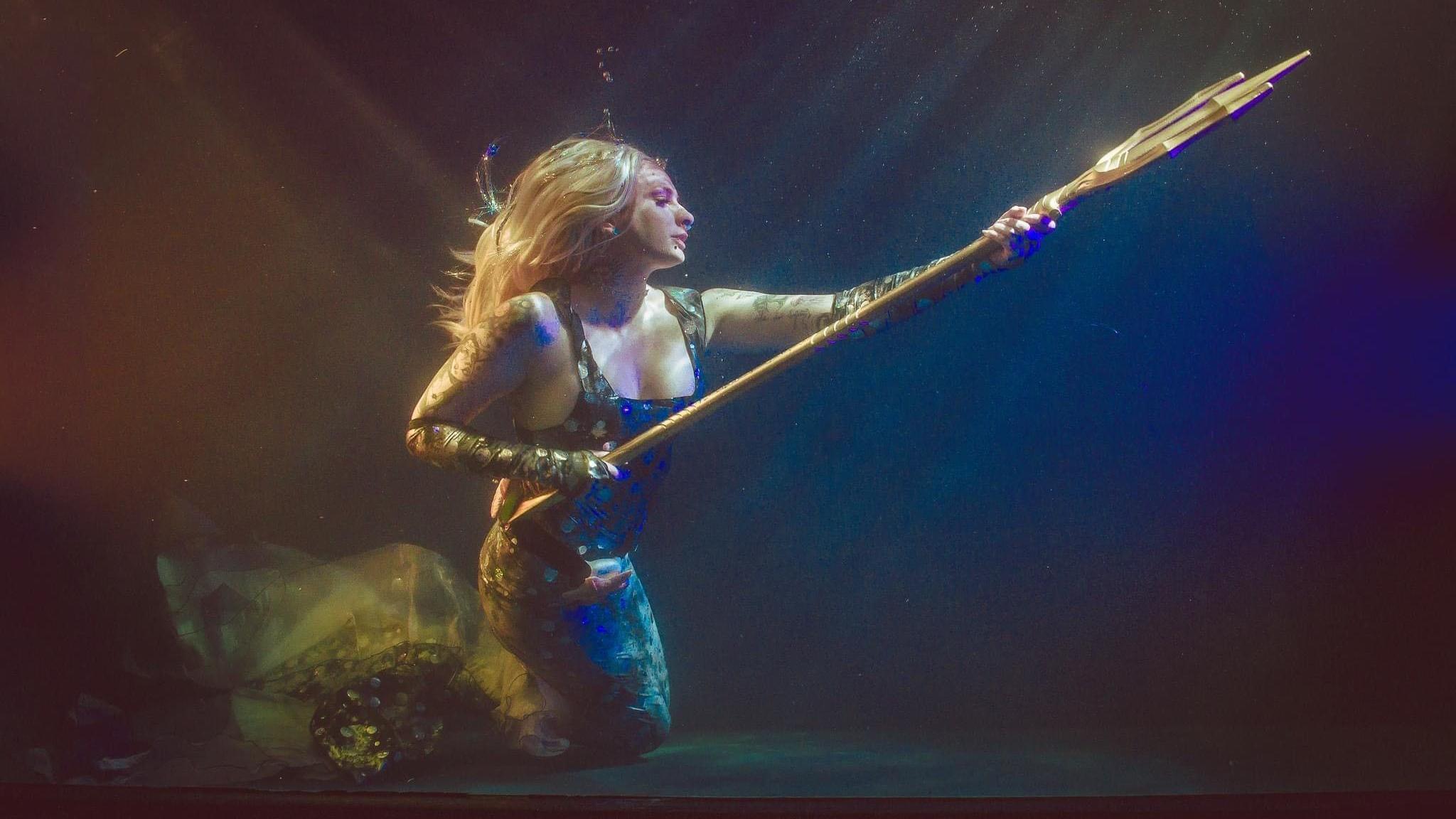
Tyler Turner started mermaiding - wearing a mermaid tail - seven years ago
"When I'm in the sea, it feels very much like you're coming out of a busy Tube or city and going straight into a nice, sacred, wholesome area with no distractions - you feel at one with yourself.
"I used to dream when I was a kid that I was a mermaid and swimming in the sea with dolphins - and to actually do that, it's just euphoric.
"I've come across a seal once. I was swimming off Prestatyn beach and I just saw its head pop up," she said.
"I turned around and swam away.
"A lot of animals are curious, but we are marine conservationists," she said. "It's within our soul to look after the environment, so it's really important to respect their space.
"The world's so magical because it's natural - we are just there to observe."
When she bought her first tail she was a lone mermaid, but over the years she has found a group of like-minded people.
She is part of Dŵr Tails, a north Wales group of 11 people who dress up as mermaids.
Woman to swim Bristol Channel in mermaid's tail
- Published9 August 2023
Wales' water pollution spikes, despite £483m spend
- Published7 June 2024
Underwater meadows planted to fight climate change
- Published22 February 2023
But finding places to train and swim in a tail is hard.
Tyler said leisure centre pools "don't really like the mermaid aspect of it - I think because of health and safety".
She said "it's really important to get your qualifications" and "don't do anything stupid, because it doesn't just affect your life - it affects the whole community".
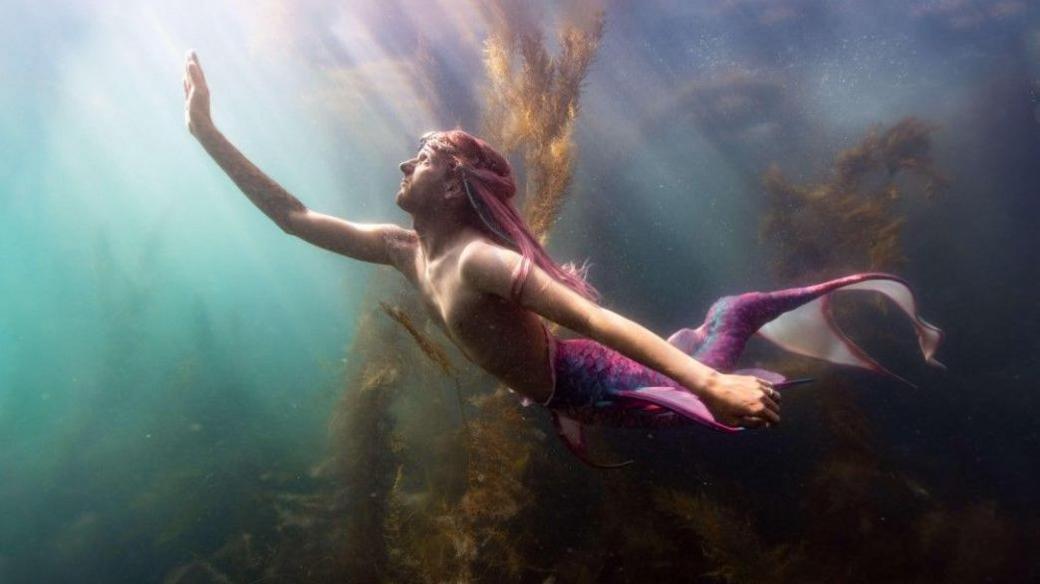
Lukas Stevenson was first shown the ropes by Emma Harper, known as Mischief the Mermaid, in Cornwall
Lukas Stevenson, 29, from Ruthin, Denbighshire, set up Scuba Schools International-backed mermaid training at Ysgol y Môr, external sea school in 2023.
"Mermaiding is like putting together swimming, snorkelling, free diving," he said.
"You go underwater and you pretend you are a dolphin and you just forget about the world completely," he said.
"I'm just swimming in the seaweed and looking at the crabs, the fish - even jellyfish.
"I feel like I am part of the ocean."
But there is a lot of training involved.
He said: "You really need to have a strong core and strong leg movement to actually propel yourself with [the monofin]."
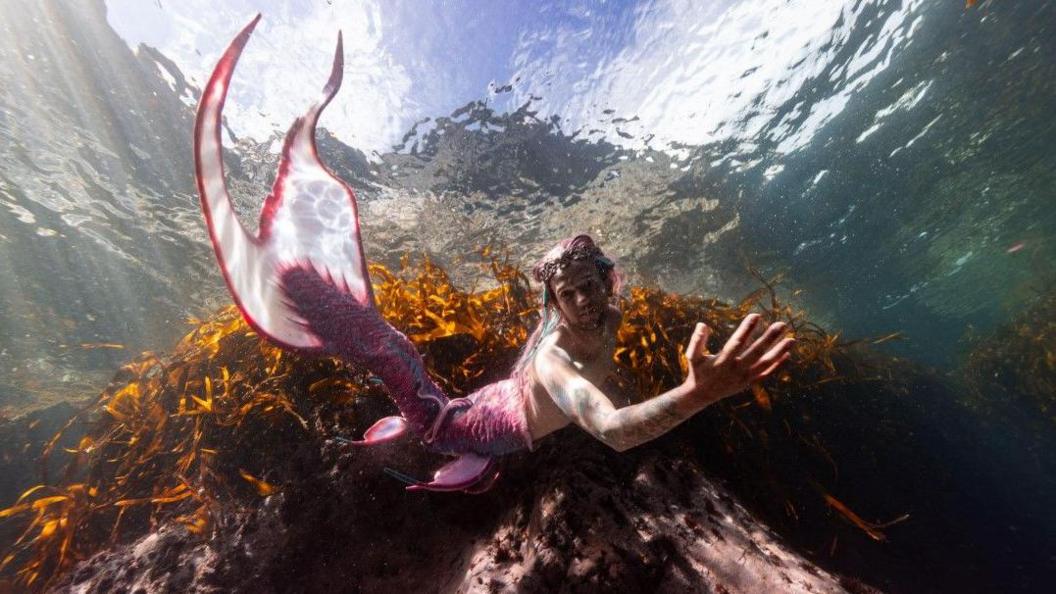
Lukas Stevenson pictured under water
He said lots of mermaids bought unsafe equipment and did not have the safety training which he called "very, very dangerous".
Training begins in a swimming pool, where mermaids-to-be learn how to safely escape the confines of their tails if they get into difficulty. They are also taught rescue techniques in case someone experiences shallow water blackout., external
Lukas said mer-people should always swim in a buddy system to stay safe at sea.
So far 11 students have progressed through the stages to swimming in the ocean, and 16 are still in training.
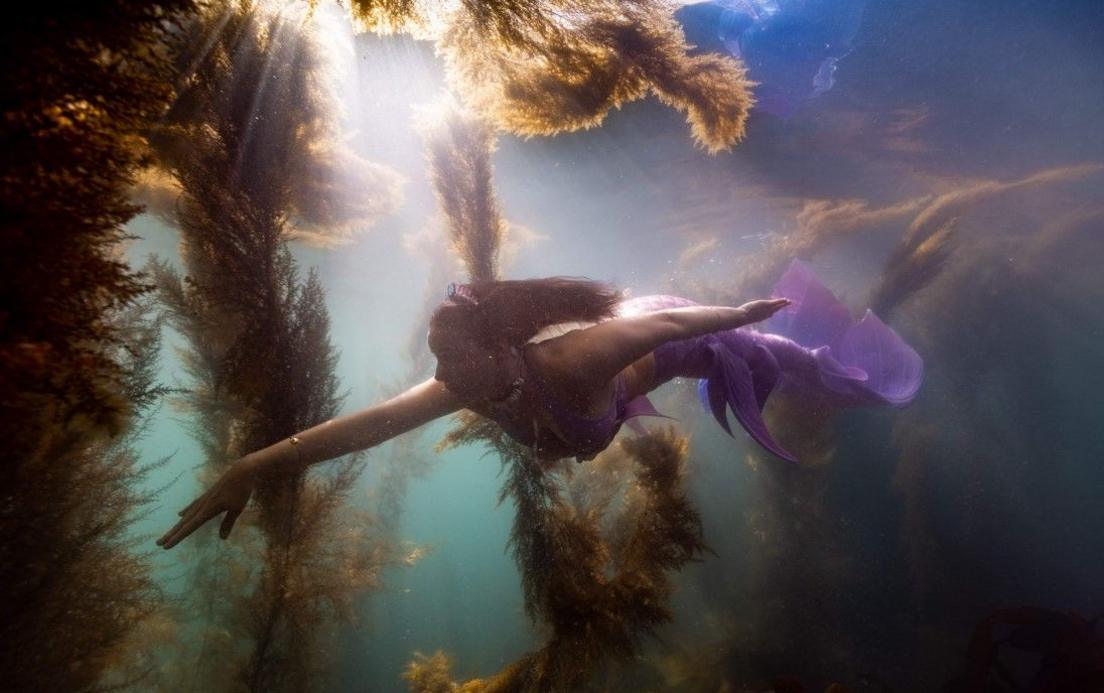
Emily-Sian Barker says being part of a group of like-minded people is one of her favourite parts of mermaiding
Emily-Sian Barker, 30, from Conwy, got into mermaiding during lockdown after seeing it on social media. She said it had helped to "heal [her] inner child" and feel "empowered".
Emily-Sian said: "It doesn't matter what people say, who's watching and who's opinionated about it - If you're loving it, and you're safe then that is all that matters. It's euphoric."
The Dwr Tails are organising a mermaid "wash-up" on Anglesey to educate children about the environment.
The plan is to swim up from the ocean onto the beach and talk about marine conservation to children. The group is in talks with the coastguard and the RNLI.
"Whenever I do the school visits, I go as a mermaid and I tell the kids this is what I experience - all this litter," Tyler said.
"One of my silicone tails even has a bit of a slash on it and I say 'that's what happened when a carrier bag got caught round my fin'.
"The kids really listen to it," she said. "They feel like they have a purpose to help."
If you have been affected by any issues raised in this article, help and support can be found at BBC Action Line.